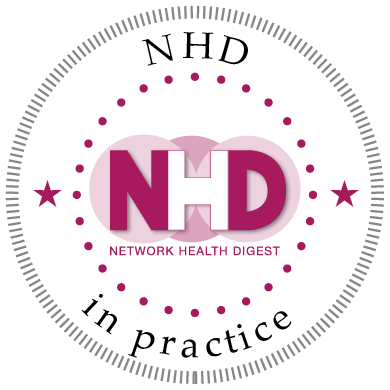NHD STUDENT BLOG SERIES

'Tis the season to be on social media!
By NHD blogger, Sian Cunningham, RD
Many of you will be regular users of social media, using it to stay in touch with current events, keeping in touch with friends and connecting with new people. Some of you may already be or might be thinking about using social media as a professional, raising the profile of nutrition and dietetics, sharing information and gaining followers through your content. Social media can be a very effective way of engaging with a large audience, but there are things to think about to make sure that you are being safe, effective and inclusive when you post!
What are the benefits of social media?
Lots of people are using social media in a professional capacity, and when used correctly it provides you with a platform to meet other professionals globally and raise the profile of your profession. It also enables you to grow your skills and knowledge (both in using social media effectively and as you fact-check what you read and before you post).
A great social media post can be very effective in delivering key messages – whether it be explaining your role or providing useful facts on diet and nutrition in easy-to-understand content.

What do I need to be careful of?

Think before you post! Take some time to consider your content from different perspectives:
Is the information correct and accurate?
Is there any possibility that you could have offended anyone?
Have you provided service user-identifiable information?
Have you delivered your message in such a way that it could put people off wanting to see someone from your profession?
Judgemental or discriminating content can do real harm to others, to your reputation and your profession. Don’t forget you are representing your profession, so you need to be projecting a positive view to the world even in your personal content.
Think about what you’ve posted in the past!
It might surprise you to learn, that even your historical social media, posted years before you qualified, can still be reported to the HCPC for consideration against their standards. So, be sure to review your historical social media activity, could any of it be called into question? If the answer is maybe, don’t panic but do take action to delete and remove!
Maintain boundaries
Social media is an informal way of communicating and you could easily be found online by people that you work with and by service users. Keeping your personal profile private can be a useful way of screening who can see your content and reduce the likelihood of service users finding you online. The HCPC recommends that should a service user add you as a friend, you should refuse the request. If you want to use social media professionally, it can be a good idea to set up a professional account where you can provide general information. Be aware that if you are employed and plan to use your account to have contact with service users, you must agree on this with your employer.
What guidance is there to support me?
The BDA Code of Conduct applies to the whole of the dietetic workforce, including support workers and dietetic students. The code currently states that you must 'behave safely, responsibly, legally and ethically online, particularly in relation to social networking sites'.(1) The code is currently being updated and you can expect to see more guidance, particularly around honesty, integrity and the importance of evidence-based messaging.
The HCPC has loads of information, including example case studies, which will be valuable in supporting you to navigate social media effectively.(2)
Happy Holidays and happy posting! Sian

Siân works with the British Dietetic Association as Professional Practice Manager. She previously worked as an Assistant Professor at the University of Nottingham. She has worked in a range of clinical areas, specialising in learning disabilities, palliative care and nutritional support.
Twitter@: siancunningham2
Siân Cunningham, MSc, RD, AFHEA
Professional Practice Manager, BDA

